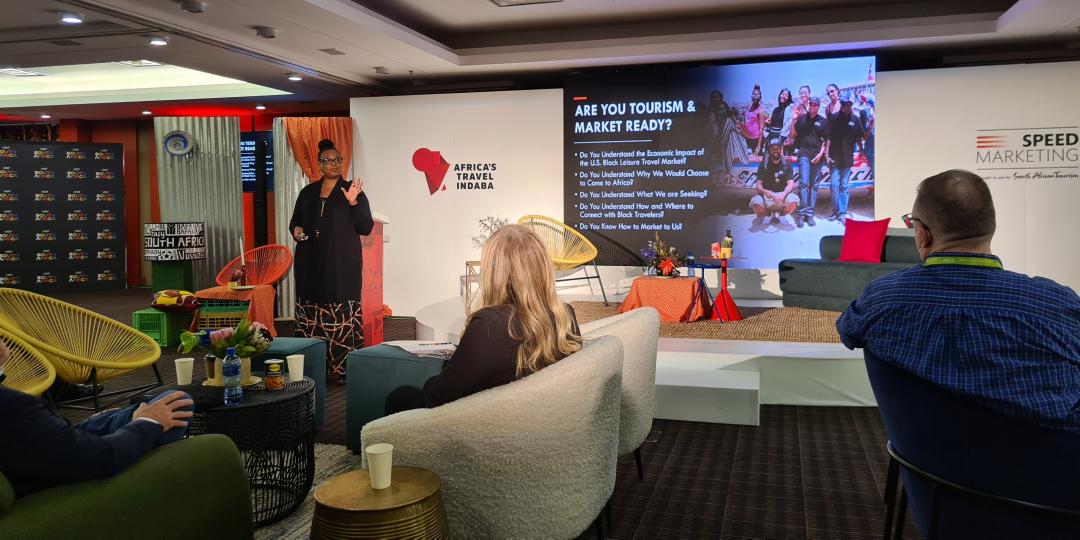A direct international flight between the Kruger National Park and the US is just one opportunity the Insights Unit at South African Tourism has identified could help boost visitor arrival numbers in the future.
Based on a new USA Market report by the agency’s Insights Unit, 51% of American travellers chose direct flights for their last visit to SA.
It’s no surprise then that SA Tourism has proposed that a direct Kruger flight “could consolidate South Africa’s leadership on wildlife and safaris”. The unit also noted that 45% of all American visitors spent time in Gauteng (44% visit Western Cape and 18% toured Mpumalanga).
The comprehensive report has even suggested that joint campaigns with island airlines could position South Africa as a hub for connecting business from the US to these other island leisure destinations.
Big business
SA Tourism identified the US as South Africa’s second-largest source market in 2022. In 2021, SAT said it was the leader based on arrivals and spend.
South Africa is also regarded as an affordable destination for US travellers, given the strength of the exchange rate (in 2022, the annual average exchange rate was R17.69 to US$1). However, SA Tourism identified airlines as the major driver of arrivals and the US market’s recovery.
According to the Insight Unit’s research, the additional seat capacity has driven fares down below 2019 levels.
Furthermore, 99% of travel out of the US is to competitor destinations such as Australia (the lead competitor), Spain, India, and Indonesia. Mexico and the Caribbean are two of the leading regional competitors, and SA Tourism said Americans’ willingness to travel creates a great potential market for South Africa.
However, it was highlighted that SA needed to take a “new look at culture and heritage” to grow arrivals. And, more American visitors could be reached with the angle of “coming home” (diaspora travel) and by messaging that focusses on more recent history that Americans have an awareness of.
Kenya was noted as the only country that featured moderately as a competitor on the African continent.
Still, the report noted: “While awareness may be low, there is an opportunity to introduce South Africa as an almost undiscovered gem, worthy of consideration. This delivers well on the desire for experiences that are off the beaten track and [on] the road well-travelled.”
Meet your customer
The report characterised the American travel market as largely middle-class while the Wanderlust (age 25-40) and NSSA segments (empty nesters age 40+) are the primary targets for South Africa. “… They have many commonalities including their being worldy travellers [with] relatively high disposable income, and a desire to explore, grow and become better people while interacting with other cultures and making a contribution,” the research explained.
According to the report, the majority of visitors enjoy (and spend money on) eating out, shopping, wildlife, and visiting natural attractions.
The research also showed that 37% of Americans currently travel to explore new cultures and history, while 20% are drawn to beautiful scenery. Another 20% travel based on the recommendations of family and friends, while a smaller share (6% each) said they travel specifically for a special event or to engage in a variety of activities.
Other significant messages for inbound operators and marketers were:
- American travellers mostly make their booking decisions four - 11 months in advance;
- VFR visitors tend to stay for a month;
- Strongly prefer to plan and book trips independently (however, most accommodation is booked through a tour operator or an airline);
- They are mainly holidaymakers (and less likely to be MICE, VFR, or business visitors);
- Holiday tourists generally stay for 12 days;
- Will spend on average R33 500;
- Social media and online travel aggregators were the top two sources of information before COVID-19, along with friend networks in the US;
- Social media, online news sites, blogs, print media (newspapers, magazines, and travel magazines) are the top media for targeting Americans not aware of SA as a travel destination; and
- South Africa competes with Europe and other developed markets such as Australia and New Zealand for American business, even though SA is an emerging economy.























